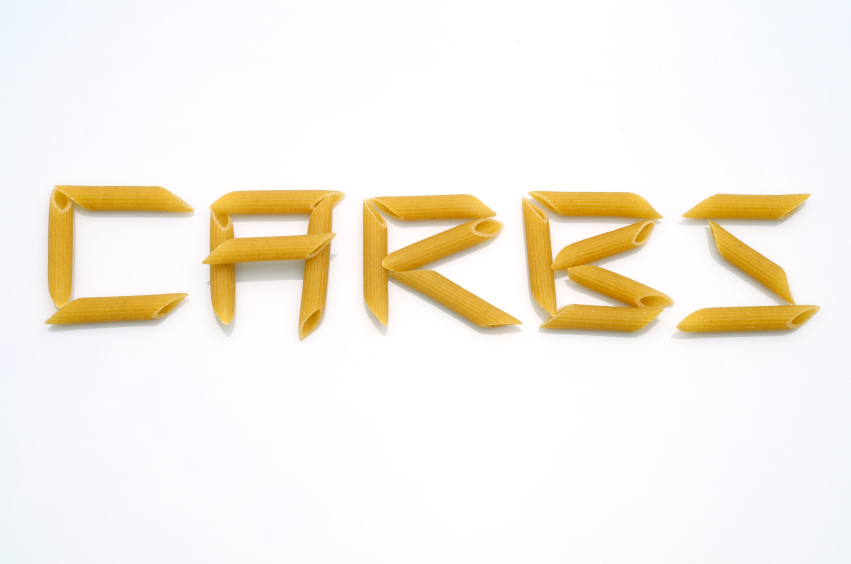What are “net” carbs?

Many of our patients enter the program with diabetes and pre-diabetes. The benefit of finding the “net” carbohydrate of a food serving is cutting back on the total amount of carbohydrates you consume, which can lead to better blood sugar control and some weight loss. “Net” carbs have also been listed on food labels as “impact carbs” or “effective carbs.” The food label can be a source of confusion, because there can be several types of carbohydrates listed under the total carbohydrates.
Fiber and half the sugar alcohols can be subtracted from the total fiber to calculate “net” carbs. Fiber is a type of carbohydrate that our bodies don’t absorb and doesn’t raise blood sugars. Fiber is in plant foods (grains, beans, fruits and vegetables,) helps with digestion and leads to feeling fuller longer. Sugar alcohols are still part of the carbohydrate world, but don’t raise blood sugars as much as other carbohydrates like sugars and starches.
Sugar alcohols are used to help a food product taste sweet with less ability to raise blood sugars. Sugar alcohols can be found in the ingredient list and may include sorbitol, xylitol, mannitol, isomalt, erythritol, glycerol (can also be listed as glycerine,) hydrogenated starch, maltitol, lactitol or other ingredients that end in –ol. Be aware that sugar alcohols still have calories. Consuming too many sugar alcohols at a time can also lead to bloating and diarrhea. Click here for an explanation about how to calculate the net carbs from a high fiber food item. Click here for an explanation about how to calculate the net carbs for foods containing sugar alcohols. Keep in mind that the FDA has not approved a definition of net carbs. Your dietitian will work with you to find a carbohydrate goal to help you keep your blood sugars in better control and to start losing weight.
@@BaileyBariatrics - funny I was going to post about "net carbs" and see if anyone could explain them to me.
Great article, but I have a question. Sometimes I will read a label and it will have a "total carbs" amount, for example: 20 total carbs.
The label then lists the sugar carbs and sugar alcohol carbs and Fiber. But they don't always add up to the total carbs listed.
Do you know what and why these unlisted carbs are?
Thanks,
Randy
I've always subtracts out fiber and sugar alcohols. The human body doesn't have the enzyme to break down fiber that's derived from plants, including fruits, vegetables and grains. Because your body cannot digest fiber, it does not provide calories for energy or nutrients for cells. I try to stick to foods that are low on the glycemic index. @@BaileyBariatrics are you a RD?
@@joatsaint Carbohydrates are made up of: 1) Complex Carbohydrates, 2) Simple sugars (or sugar), and 3) Dietary fiber , sometimes separated into soluble and insoluble on the label. United States Federal Law requires that companies state on the nutrition facts label the total grams of carbohydrates, dietary fiber, and sugars. This makes listing the content of complex carbohydrates as optional, which in most cases, will make up for the difference between total carbohydrate, and the sum of dietary fiber and sugars. I hope that helps to answer your question.
Thank you, that's exactly what I was looking for. I'd never realized that it was the complex carbs that weren't listed. I had tried Googling the answer a few times, but I was never able to get a straight answer.
@@joatsaint Carbohydrates are made up of: 1) Complex Carbohydrates, 2) Simple sugars (or sugar), and 3) Dietary fiber , sometimes separated into soluble and insoluble on the label. United States Federal Law requires that companies state on the nutrition facts label the total grams of carbohydrates, dietary fiber, and sugars. This makes listing the content of complex carbohydrates as optional, which in most cases, will make up for the difference between total carbohydrate, and the sum of dietary fiber and sugars. I hope that helps to answer your question.
@@MrsSugarbabe Thank you! I thought so!
im a big fan of the Eades. ( sort of like Atkins) but they believe more in the high Protein low carbs that have come to be associated with our type of weight loss. They always gave that net carb formula. which is of course, total fiber + Protein - carbs = net carbs. and it has really worked for me. Now im very grateful for the addition of the half sugar alcohols number to add in, i find the real sugar alcohol culprits are found in the s products like sugar free candies etc. things that we should probably stay away from anyway, sugar free cakes etc.
Yes, @Elode, I am an RD. Thank you for your question and I hope you find this information helpful.
I've always subtracts out Fiber and sugar alcohols. The human body doesn't have the enzyme to break down fiber that's derived from plants, including fruits, vegetables and grains. Because your body cannot digest fiber, it does not provide calories for energy or nutrients for cells. I try to stick to foods that are low on the glycemic index. @BaileyBariatrics are you a RD?
@joatsaint, Good question. It may be due to labeling laws. The manufacturer is allowed to round the data. So, fiber wouldn’t be listed as 1.2 gr, it would be listed as 1.0 gr.
Thank you,
Rene
Great article, but I have a question. Sometimes I will read a label and it will have a "total carbs" amount, for example: 20 total carbs.
The label then lists the sugar carbs and sugar alcohol carbs and fiber. But they don't always add up to the total carbs listed.
Do you know what and why these unlisted carbs are?
Thanks,
Randy







CowgirlJane 14,260
Posted
I was advised to look at total carbs - simple and seems to work well.
Share this comment
Link to comment
Share on other sites